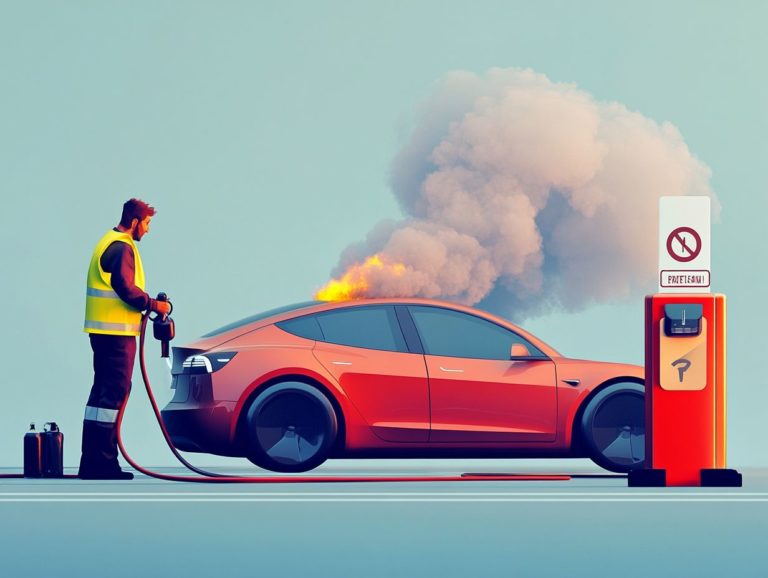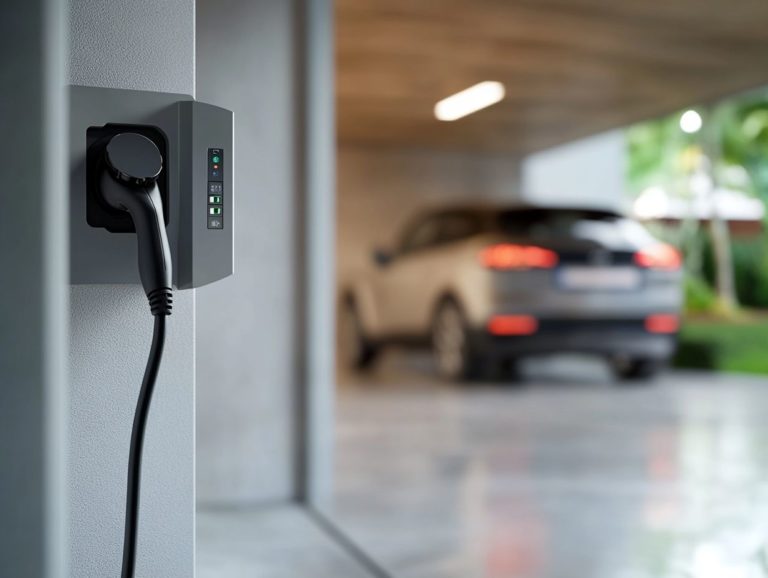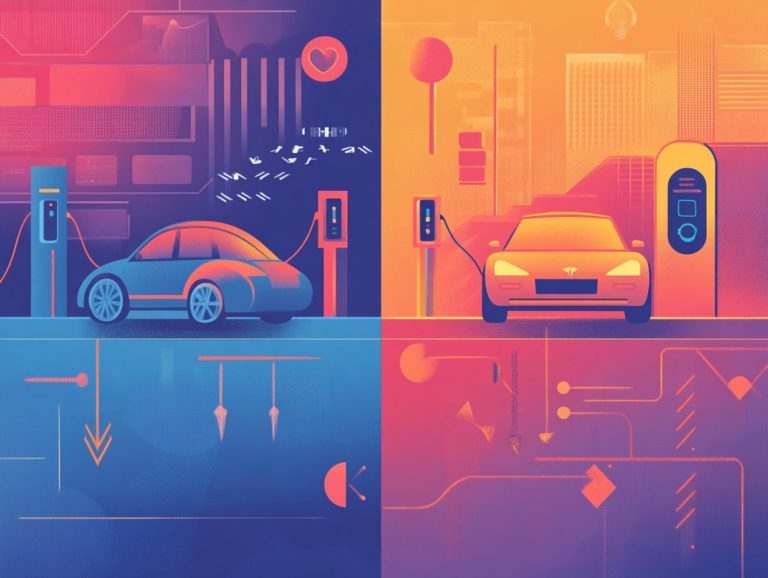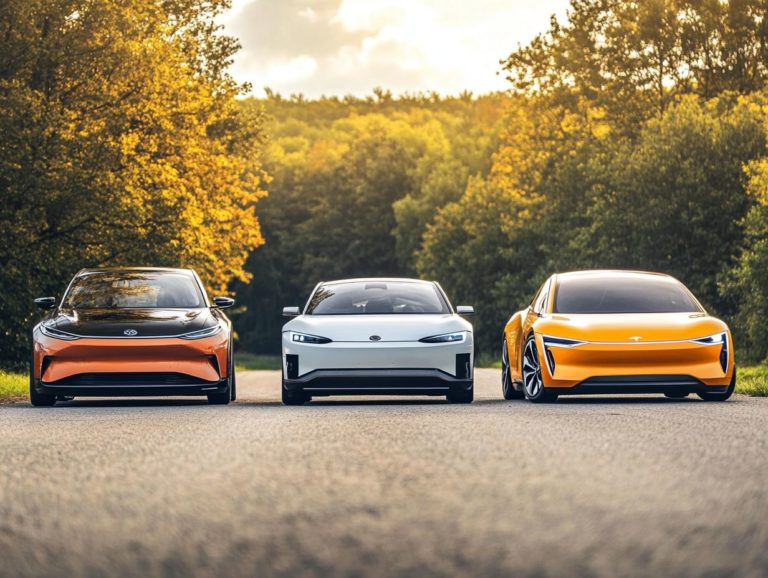what should i know about ev technology trends?
Electric vehicles (EVs) are transforming the automotive landscape. This shift is driven by technological advancements and changing consumer preferences.
This article explores the latest trends in EV technology. We ll highlight breakthroughs in battery efficiency, charging infrastructure, and innovations in electric motors.
Discover how these developments are shaping the automotive industry. Learn what they mean for the future, including potential for autonomous driving and renewable energy integration.
Join us as we unravel this exciting transformation.
Contents
Key Takeaways:
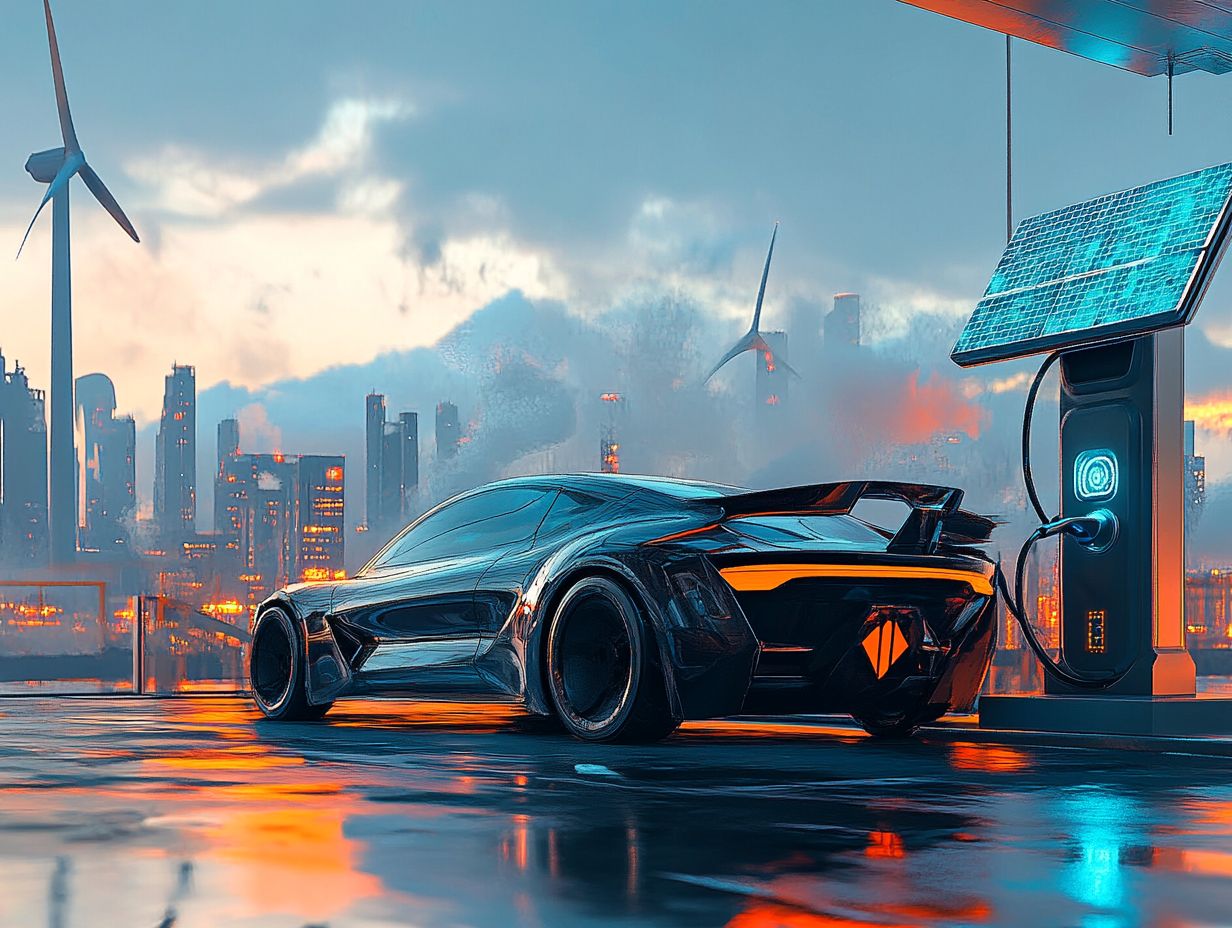
Electric vehicles are rapidly evolving. Advancements in battery technology, charging infrastructure, and electric motors are leading the charge.
The automotive industry is shifting toward EVs, driven by consumer preferences and new manufacturing processes.
Exciting potential lies ahead in EV technology, with possibilities for autonomous driving and the integration of renewable energy sources.
Overview of Electric Vehicles
Electric vehicles (EVs) represent a pivotal shift toward sustainable transportation. As electric vehicle development progresses, the market is evolving rapidly, led by companies like Tesla, Ford, and General Motors.
This evolution is fueled by a growing demand for greener alternatives. Enhanced battery technologies and the popularity of battery electric vehicles (BEVs) and hybrids are driving this change.
Eager consumers are seeking efficient, eco-friendly options that fit their lifestyles. Hybrid vehicles bridge the gap between traditional combustion engines and fully electric models, helping to pave the way for a sustainable transportation future.
Current Trends in EV Technology
Current trends in EV technology show a shift towards innovation. Manufacturers are enhancing battery efficiency, expanding the charging ecosystem, and refining rapid charging capabilities.
These changes are vital for meeting the demands of a more eco-conscious consumer base. With lower battery costs and more charging stations, vehicle sales are increasing, driving growth in the electric vehicle market share.
Advancements in Battery Technology
Recent advancements in battery technology, particularly lithium-ion batteries, are crucial for enhancing EV performance. Innovations like silicon carbide (SiC) and gallium nitride (GaN) semiconductors improve overall efficiency.
These enhancements meet rising consumer demand for electric vehicles. They also cut energy losses during power conversion, significantly increasing energy density in batteries.
This improved efficiency leads to more compact battery units. It also facilitates the integration of renewable energy sources into the mainstream market, accelerating a shift toward sustainable energy solutions.
These trends indicate a promising future. The collaboration between semiconductors and battery innovations is transforming industries, supporting the transition toward greener energy systems.
Improvements in Charging Infrastructure
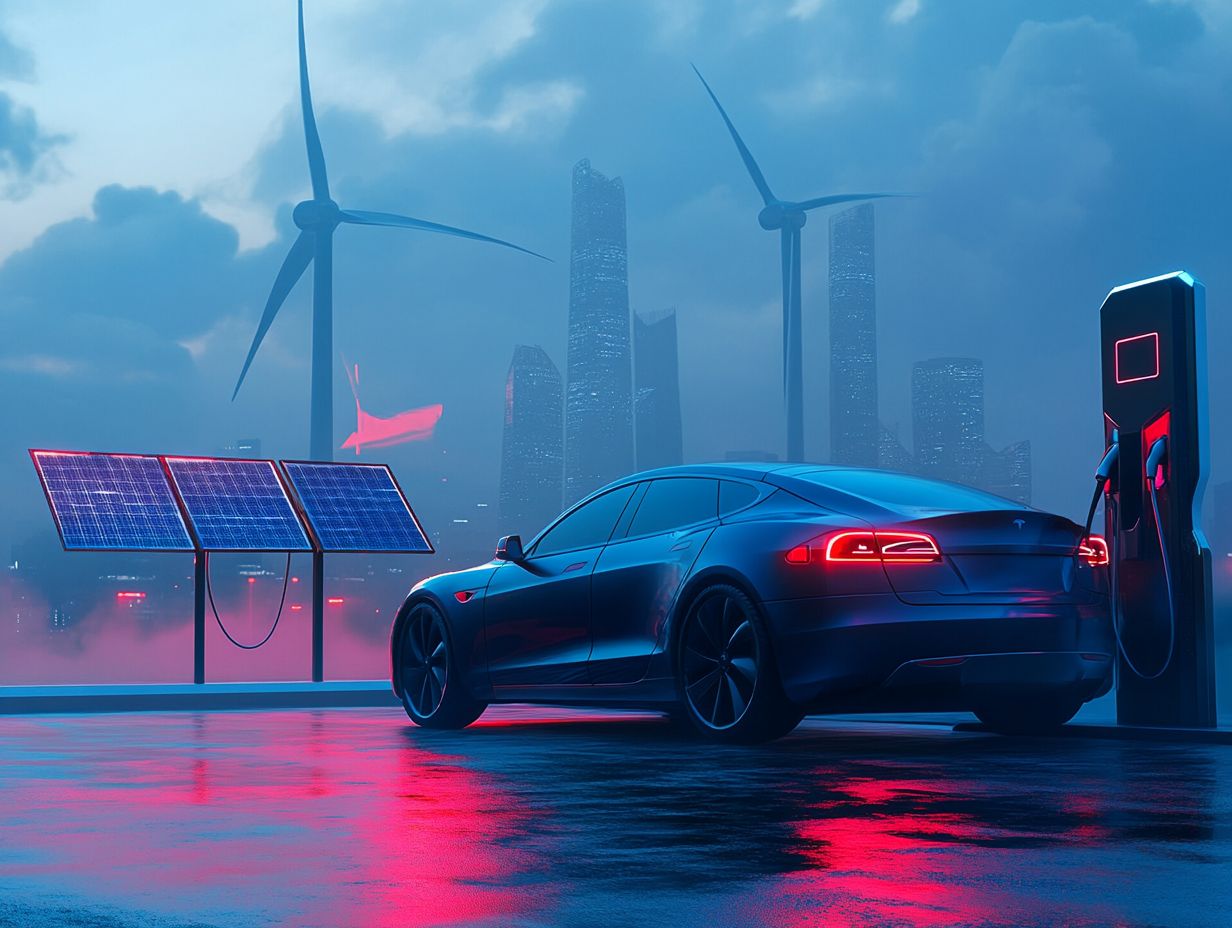
Improvements in charging infrastructure are critical for the widespread adoption of electric vehicles (EVs), requiring the development of a comprehensive charging ecosystem. With initiatives like the Tesla Supercharger network leading the charge, more charging stations are appearing across urban and rural landscapes. This enables rapid charging and alleviates the challenges EV users face.
This expansion is essential for boosting EV usage and ensuring that owners have convenient access to charging options. However, the current landscape is fragmented, with various players, including ChargePoint, Electrify America, and local governments, competing to establish their networks.
Stakeholders encounter significant hurdles, such as integrating different charging standards and fluctuating installation costs, which can impede the rollout of stations in less populated areas. The pursuit of a cohesive strategy for maintenance and interoperability meaning the ability of different systems to work together is crucial. Inconsistencies not only confuse consumers but can also stunt the overall growth of the EV market.
Tackling these challenges is essential for building a robust infrastructure that genuinely caters to the evolving needs of EV users.
Innovations in Electric Motors
Exciting innovations in electric motors are fundamentally transforming your experience with electric vehicles, unlocking a new realm of efficiency and power in automotive electronics. These advancements play a crucial role in shaping the future of EV development, affecting everything from acceleration to energy efficiency.
As the automotive industry pushes the limits of electric motor technology, you’re witnessing a shift toward more compact and powerful designs that align with your expectations for sustainable, high-performance vehicles.
With the integration of advanced materials and improved cooling systems, these electric motors are not just lighter; they also provide enhanced torque delivery and responsiveness for a more engaging driving experience.
The development of sophisticated control algorithms enables greater precision in power management, resulting in superior handling and driving dynamics.
This evolution in motor technology paves the way for a new horizon in electric mobility, making longer ranges and faster charging times increasingly attainable.
As manufacturers embrace these innovations, their influence on the entire automotive ecosystem becomes clear, ushering in a new era of creativity and environmental awareness that benefits you and the planet.
Impact of EV Technology on the Automotive Industry
The impact of EV technology on the automotive industry is transformative, compelling manufacturers to adapt to changing consumer preferences and regulatory frameworks prioritizing sustainability.
The surge in electric vehicles is driving substantial shifts in production strategies, encouraging collaborations across the industry to spur innovation and respond to the dynamic market landscape.
As more consumers embrace electric mobility, traditional automakers must reimagine their business models to stay relevant and competitive.
Changes in Consumer Preferences
Changes in consumer preferences are profoundly shaping the electric vehicle market, as you increasingly prioritize sustainability, efficiency, and cost-effectiveness in your choices.
The demand for electric cars is surging, fueled by a heightened awareness of environmental issues and the plummeting prices of EVs due to technological advancements.
These shifts prompt manufacturers to forge partnerships to align with your evolving expectations.
Economic incentives like tax rebates and the expansion of charging infrastructure make the transition to electric vehicles even more attractive for you.
Additionally, the substantial impact of social media campaigns and influencer marketing effectively informs you about the myriad benefits of EVs.
This growing awareness fosters a more eco-conscious consumer base and nudges traditional car owners to consider the advantages of switching to electric options, ultimately reshaping the automotive landscape for years to come.
Shift in Manufacturing and Supply Chain
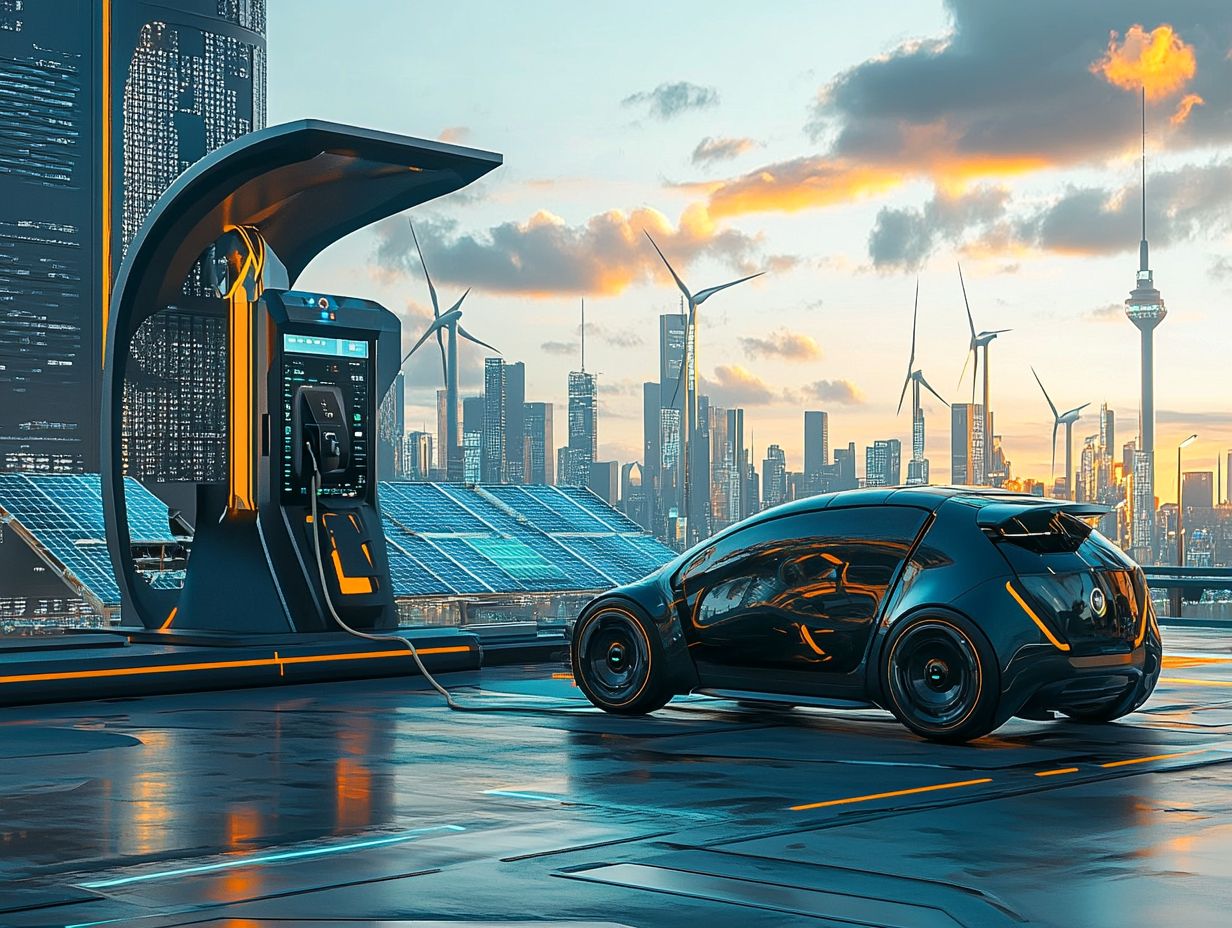
The shift in manufacturing and supply chain dynamics is pivotal for the electric vehicle supply chain, as automakers are witnessing investments in more sustainable practices and technologies to support the expansion of EVs.
Key factors shaping this transformation include battery costs and raw material availability. This prompts a reevaluation of traditional manufacturing processes.
With the demand for electric vehicles on the rise, understanding these shifts is essential for industry stakeholders.
You are navigating a landscape where innovation is crucial in overcoming challenges related to resource scarcity and production efficiency.
Emerging technologies, such as advanced robotics and AI-driven logistics, streamline operations and enhance the overall sustainability of the supply chain.
Collaborations between manufacturers and raw material suppliers are crucial, providing opportunities for improved sourcing strategies that consider both cost and ecological impact.
As consumers grow more conscious of their environmental footprints, striking a balance between efficiency and sustainable practices is essential to maintain a competitive edge in this evolving market.
Future Predictions for EV Technology
Future predictions for EV technology indicate a promising trajectory, with advancements in autonomous vehicles and energy sustainability leading the charge in innovation.
Electric drive trains are becoming more sophisticated. You will likely see a rise in applications like vehicle-to-home (V2H) systems, which allow electric vehicles to power homes, and vehicle-to-grid (V2G) systems, enabling them to provide energy back to the grid.
These innovations will enhance energy efficiency and facilitate better integration with renewable energy sources. Such developments will not only transform your driving experience but also play a pivotal role in shaping a sustainable energy future.
Potential for Autonomous Driving
Autonomous driving is a game-changer for electric vehicles, offering unmatched safety, convenience, and efficiency. As innovation in EVs accelerates, the integration of advanced technologies like artificial intelligence and sensor systems is becoming the norm.
However, implementing autonomous vehicles also brings a host of regulatory requirements that must be met to ensure safety and build public trust. Navigating these challenges often means dealing with complex legislative landscapes, ensuring robust cybersecurity measures, and fostering public acceptance of self-driving technology.
Yet, amidst these hurdles, opportunities abound. Companies are harnessing machine learning to refine navigation algorithms and optimize energy management, ultimately enhancing the overall user experience.
Collaborations among automotive manufacturers, tech firms, and government agencies are crucial to crafting a sustainable roadmap for the future. As consumers eagerly anticipate widespread deployment, it’s crucial for stakeholders to strike a balance between innovation and accountability, paving the way for smarter, greener urban mobility.
Integration with Renewable Energy Sources
The integration of electric vehicles with renewable energy sources holds remarkable potential to elevate energy sustainability and significantly reduce carbon footprints. Innovations such as vehicle-to-home (V2H) and vehicle-to-grid (V2G) systems enable electric vehicles to function as mobile power banks.
However, ensuring reliability and efficiency in these systems remains a critical challenge for their widespread adoption. As society increasingly embraces renewable energy, the role of electric vehicles becomes even more essential. They assist in balancing energy loads and enhance the utilization of solar and wind power, which can often be intermittent.
By employing smart charging strategies, electric vehicles can recharge during low energy demand or when renewable energy generation peaks, maximizing the use of green energy. This symbiotic relationship paves the way for innovative energy storage solutions, highlighting the broader implications for cities striving for carbon neutrality.
As infrastructure evolves to support these technologies, the entire energy ecosystem can become more resilient and interconnected, benefiting everyone involved.
Stay informed and be part of the EV revolution!
Frequently Asked Questions
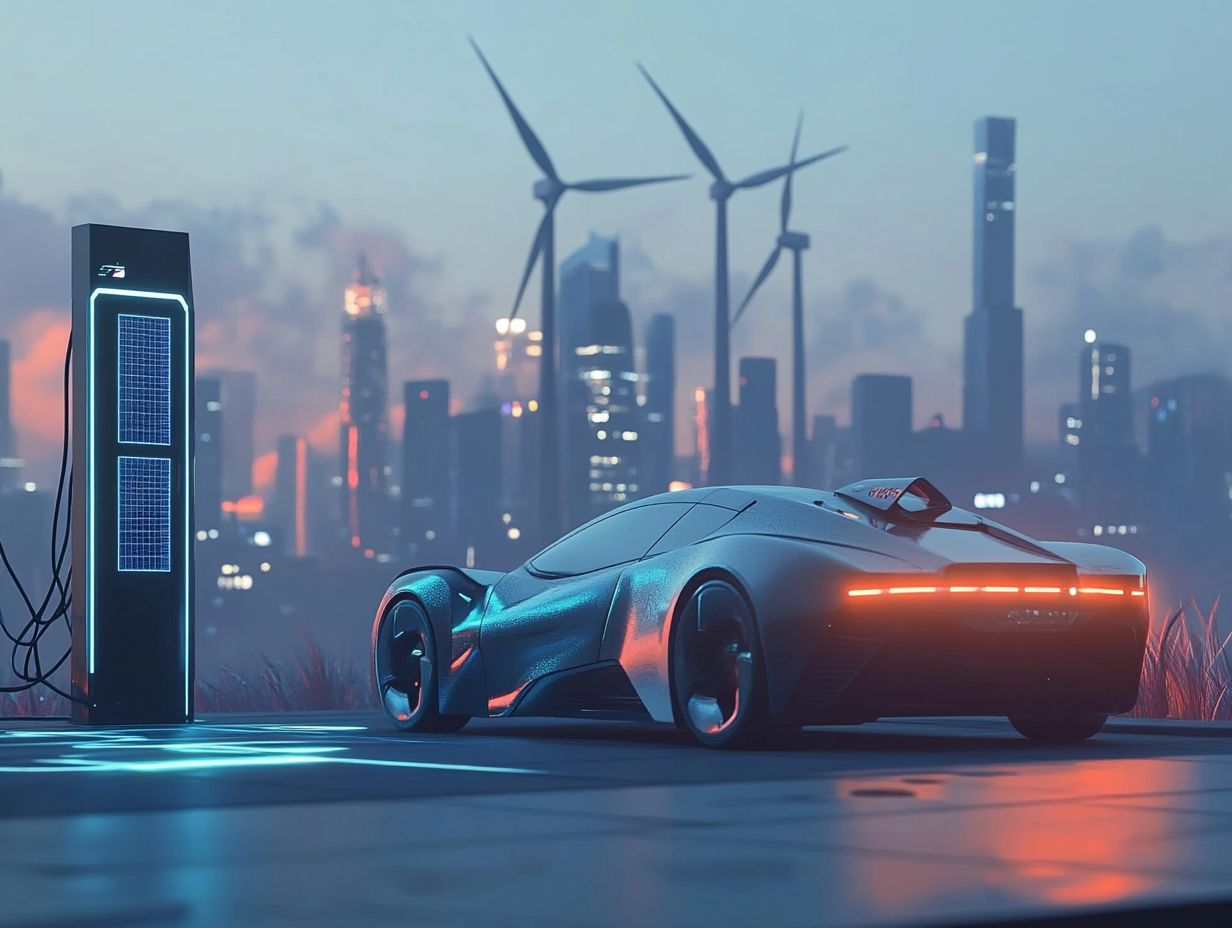
What should I know about EV technology trends?
Electric vehicle (EV) technology is rapidly evolving, and knowing what to expect in electric vehicle design trends is crucial to stay updated on the latest advancements.
What is the current state of EV technology?
EV technology is growing quickly. Major car manufacturers are committing to producing more electric vehicles, and governments are taking bold steps to promote EV adoption!
What are some emerging trends in EV technology?
Solid-state batteries are one exciting trend. They are a newer type of battery that can hold more energy and charge faster.
Another trend involves integrating artificial intelligence and self-driving technology into EVs.
Are there any challenges facing EV technology?
Despite the rise of EVs, challenges remain. Key issues include battery range, charging infrastructure, and affordability for consumers.
How can I stay informed about EV technology trends?
To keep up with EV trends, follow industry news. Attend conferences and join online communities of EV enthusiasts.
What impact do EV technology trends have on the environment?
The shift to EV technology helps reduce carbon emissions. As adoption increases, reliance on fossil fuels for transportation will significantly decrease.

